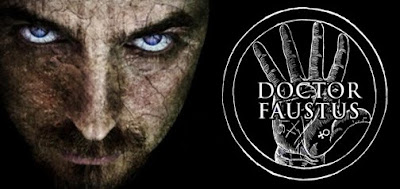
1. As we discussed in class on Thursday, the Renaissance differed greatly from the medieval period. In the middle ages, knowledge was controlled. For most people, access to learning was denied, even forbidden. For those who had access to education, spiritual knowledge was at the center of learning. In the Renaissance, however, this began to change. Humanism embraced the secular as well as the spiritual, and both classical learning and scientific inquiry were valued. Marlowe wrote Dr. Faustus (or at least he probably wrote most of it; the play's authorship is not entirely clear) during this period of transition, so it is useful to think of Dr. Faustus as a transitional figure. If we read the play in this way, what might its "message" or "moral" be? Is Dr. Faustus an example of the new, modern England, a man unjustly condemned by the medieval world in which he lives? Or is he a warning against godlessness, pride, and over-reaching ambition? How do you think Marlowe feels about this "new" England? Please refer to specific examples from the play in your answer.
2. Some readers feel that the real tragedy of Dr. Faustus is not that he embraces dark arts, or that he makes a pact with the devil, but that he allows his ideals to become corrupted. In this sense, we might say that someone is Faustian when he/she embraces or commits terrible acts in the name of something noble and good. Point to examples of this from the play and then point to other examples, ancient or modern, of similar "Faustian" figures.
3. What we know of Marlowe is fascinating. He went to school to become a minister, but he never became one. Cambridge refused to give him his M.A., suspecting that he had converted to Catholicism, but the Queen intervened on his behalf because it seems that at several points during his time there, he left Cambridge on espionage missions for the Queen. Marlowe died in a drunken brawl, though some scholars believe he was assassinated. Does knowing any of this change the way you feel about the play? If you were to write a piece of biographical criticism about Marlowe's Dr. Faustus, what part(s) of the play would you focus on?
4. What does Dr. Faustus suggest about knowledge? Is knowledge something that exists for us to find, or do we create it through our own actions? Is it dangerous? What are the potential ethical questions surrounding knowledge? Do you think, for example, there is a relationship between the questions raised by the play and contemporary issues like cloning, embryonic stem cell research, genetically-modified foods, etc.?
See you on Tuesday.
2. Some readers feel that the real tragedy of Dr. Faustus is not that he embraces dark arts, or that he makes a pact with the devil, but that he allows his ideals to become corrupted. In this sense, we might say that someone is Faustian when he/she embraces or commits terrible acts in the name of something noble and good. Point to examples of this from the play and then point to other examples, ancient or modern, of similar "Faustian" figures.
3. What we know of Marlowe is fascinating. He went to school to become a minister, but he never became one. Cambridge refused to give him his M.A., suspecting that he had converted to Catholicism, but the Queen intervened on his behalf because it seems that at several points during his time there, he left Cambridge on espionage missions for the Queen. Marlowe died in a drunken brawl, though some scholars believe he was assassinated. Does knowing any of this change the way you feel about the play? If you were to write a piece of biographical criticism about Marlowe's Dr. Faustus, what part(s) of the play would you focus on?
4. What does Dr. Faustus suggest about knowledge? Is knowledge something that exists for us to find, or do we create it through our own actions? Is it dangerous? What are the potential ethical questions surrounding knowledge? Do you think, for example, there is a relationship between the questions raised by the play and contemporary issues like cloning, embryonic stem cell research, genetically-modified foods, etc.?
See you on Tuesday.

No comments:
Post a Comment